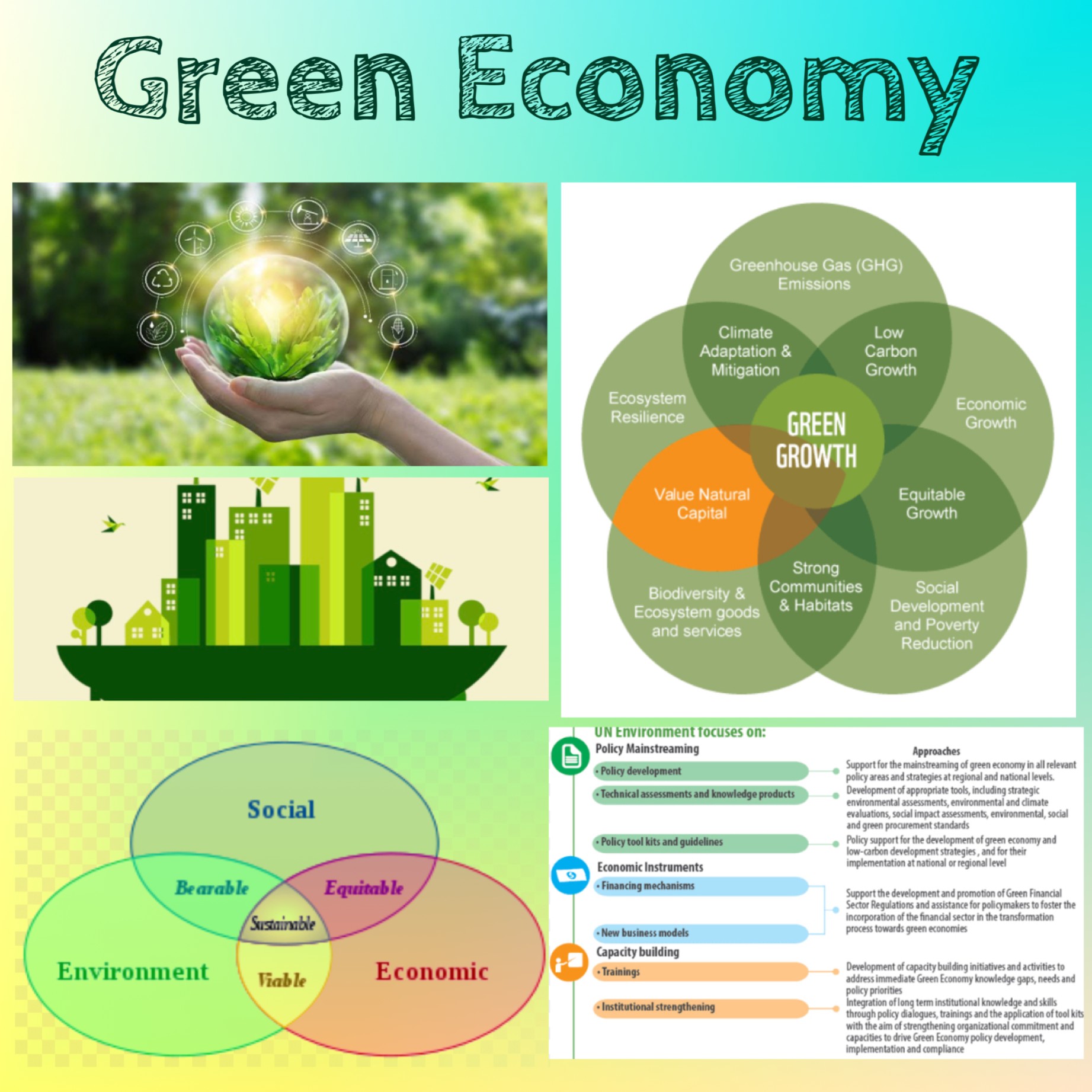Green Economy Initiatives: Paving the Way for a Sustainable Future

Introduction
In the face of mounting environmental challenges, the concept of a green economy has emerged as a beacon of hope, promising a harmonious coexistence between economic growth and environmental preservation. At its core, a green economy redefines economic progress, prioritizing resource efficiency, renewable energy sources, and sustainable practices to foster a low-carbon, environmentally friendly future.
Understanding Green Economy Initiatives

Green economy initiatives encompass a wide spectrum of strategies and actions aimed at transitioning towards a sustainable economic model. These initiatives span across various sectors, including energy, transportation, manufacturing, agriculture, and waste management.
1. Resource Efficiency: Minimizing resource consumption and maximizing resource productivity to reduce environmental impact.
2. Renewable Energy: Prioritizing the utilization of renewable energy sources such as solar, wind, geothermal, and hydropower to lower carbon emissions.
3. Sustainable Practices: Implementing eco-friendly practices across all economic activities, from production to consumption, to reduce environmental harm.
4. Low-Carbon Economy: Transitioning towards a low-carbon economy by reducing greenhouse gas emissions and promoting carbon sequestration initiatives.
Significance of Green Economy Initiatives
The adoption of green economy initiatives holds immense significance for both the environment and economic well-being.
1. Combating Climate Change: Green initiatives mitigate climate change by reducing greenhouse gas emissions and promoting renewable energy sources.
2. Conserving Resources: Efficient resource utilization and sustainable practices ensure the preservation of finite natural resources for future generations.
3. Protecting Ecosystems: Environmentally friendly practices safeguard biodiversity and protect delicate ecosystems from degradation.
1. Sustainable Growth: Green economy initiatives foster sustainable economic growth, decoupling economic progress from environmental degradation.
2. Job Creation: The transition to a green economy generates new employment opportunities in clean energy, resource management, and sustainable sectors.
3. Improved Public Health: Reduced air and water pollution, a consequence of green initiatives, enhances public health and well-being.
Implementing Green Economy Initiatives
The successful implementation of green economy initiatives requires a multifaceted approach that encompasses policy frameworks, technological advancements, and societal engagement.
1. Carbon Pricing: Implementing carbon pricing mechanisms, such as carbon taxes or emissions trading schemes, incentivizes businesses to reduce their carbon footprint.
2. Subsidies and Incentives: Providing financial support and incentives for the adoption of green technologies and practices encourages businesses and individuals to embrace sustainability.
3. Regulatory Standards: Establishing stringent environmental regulations and standards ensures that businesses operate within sustainable limits.
1. Renewable Energy Technologies: Investing in research and development of renewable energy technologies, such as solar panels, wind turbines, and energy storage systems, enhances their efficiency and affordability.
2. Resource-Efficient Technologies: Developing and implementing resource-efficient technologies in industries such as manufacturing and agriculture minimizes waste and maximizes resource utilization.
3. Clean Transportation Systems: Promoting the adoption of electric vehicles, public transportation, and non-motorized transport reduces reliance on fossil fuel-powered vehicles and lowers emissions.
1. Education and Awareness: Raising public awareness about environmental issues and the benefits of green practices encourages individual behavioral change and community-level initiatives.
2. Empowering Communities: Involving local communities in decision-making processes and providing them with resources and support fosters ownership and engagement in green initiatives.
3. Sustainable Consumption: Encouraging sustainable consumption patterns, such as reducing waste, recycling, and choosing eco-friendly products, minimizes the environmental impact of individual lifestyles.
Examples of Green Economy Initiatives
Numerous green economy initiatives are being implemented worldwide, demonstrating the diverse approaches and positive impacts of this transformative movement.
1. Costa Rica’s Renewable Energy Transition: Costa Rica has achieved remarkable success in transitioning to renewable energy sources, generating over 98% of its electricity from clean sources, primarily hydropower and geothermal energy.
2. Germany’s Energy Efficiency Program: Germany has implemented comprehensive energy efficiency programs, including building retrofits, appliance labeling, and financial incentives, leading to significant reductions in energy consumption and emissions.
3. Denmark’s Wind Energy Leadership: Denmark has established itself as a global leader in wind energy, with wind power accounting for over 40% of its electricity generation and ambitious plans for further expansion.
4. Singapore’s Green Plan 2030: Singapore has launched the ambitious Green Plan 2030, outlining a comprehensive strategy to achieve net


![PDF] Herding behavior in stock market: a case in Malaysia](https://investtechpro.com/wp-content/uploads/2024/04/pdf-herding-behavior-in-stock-market-a-case-in-malaysia-60x60.png)
